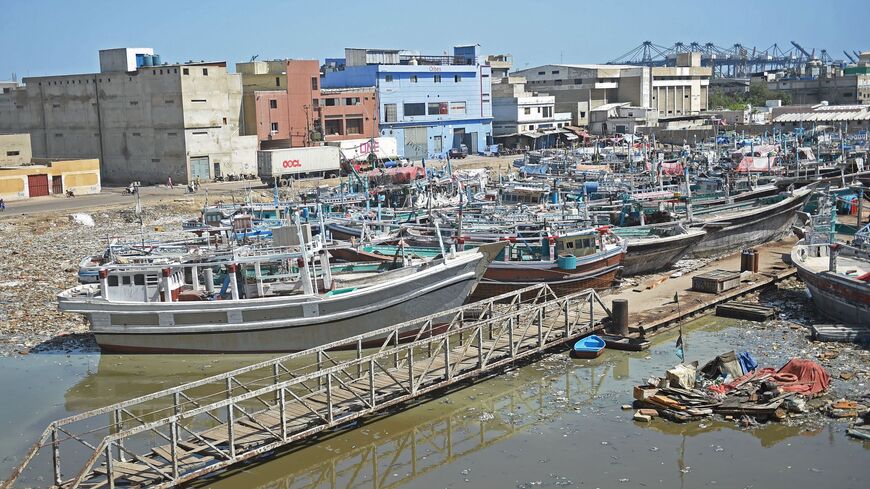The United Arab Emirates (UAE) and Saudi Arabia have accelerated the pace of investments in Pakistan. If Abu Dhabi decides to invest further in Pakistan, it is quite likely that Riyadh will follow suit as part of their unspoken rivalry.
Since 2021, the kingdom has been giving incentives to multinational companies to headquarter at Riyadh. Therefore, even though Dubai is an established regional business hub, Riyadh is becoming its top competitor as a leading logistics center.
If a UAE-Saudi business race starts off in Pakistan, Islamabad will have to balance both of its close allies.
In search of a viable long-term solution to prop up its ailing economy, cash-strapped Islamabad has created a Special Investment Facilitation Council (SIFC), which has offered 28 high-value projects worth billions of dollars to friendly countries. The main focus is on Saudi Arabia, the UAE, Qatar and Bahrain.
First to avail the opportunity, the UAE-based AD Ports Group leased four berths at Karachi Port for 50 years and around $220 million in June. Just weeks later, Abu Dhabi inked a second major seaport terminal deal. As a result, around 85% of East Wharf would be controlled by the UAE company.
Zeeshan Shah, financial analyst at FINRA in Washington, “The increasing rivalry between the Saudis and Emiratis should not be overlooked as both countries will probably try to one-up the other. … Pakistan will have to be prudent in being even-handed between both countries if they happen to compete for various investment opportunities.”
Not lagging far behind, Saudi Arabia’s Aramco has signed a memorandum of understanding with four Pakistani state-owned oil companies to build a $12 billion greenfield oil refinery at Gwadar in the province of Baluchistan. The local companies would contribute 70% equity while Aramco would initialize the project with 30% equity.
Meanwhile, Pakistan has also offered its major airports for investment, and Saudi companies are interested in airports outsourcing.
Zubair Faisal Abbasi, development policy and management specialist based in Islamabad, told Al-Monitor, “Pakistan requires foreign investment to expand and further diversify its economy. It envisions scaled-up IT sector contribution in the exports-based economy, and also seeks modernizing investments in agriculture sector to increase productivity. In addition, the country has huge potential in the mining sector.”
Ranging from copper and gold mines in Chagai, the Thar Coal Rail Connectivity scheme to the Diamer-Bhasha Dam and agricultural farms, the investment from these projects could go even higher than the $28 billion invested under the China-Pakistan Economic Corridor up till now, if all the projects get picked up by the Arab states.
In the past, the absence of a swift, one-window operation for foreign investors used to be an impediment. But now, the SIFC mechanism has made things easier, especially as adequate legal cover has been provided.
“One of the binding constraints on Pakistan’s economic growth has been bureaucratic inertia and problematic economic governance due to 'sludge' in the economic policy implementation,” Abbasi said. The SIFC, he noted, can “reduce red tape, bring in efficiency, and create synchronization in decision-making processes. Therefore, the investments may not only change sector growth, but also alter the institutional arrangements of economic governance.”
Providing equity for SIFC-approved projects for joint ventures, a Pakistan Sovereign Wealth Fund has also been created. In due course, seven profitable state-owned entities worth up to $8 billion are to be transferred to this fund.
However, Shah cautioned that the Saudis and Emiratis' interest stems from "the removal of red tape, the ability to purchase potentially lucrative assets, and security of their investments, rather than being attracted to invest in Pakistan by structural economic reforms which would strengthen the Pakistani economy in the long term as well as Pakistani bargaining power as well.”
For now, in reaction to the Gulf investments, the Pakistan stock market remains positive, reaching a two-year high.
From the Gulf Cooperation Council member states, Qatar is also considering the investment offer, and Doha is having talks with Pakistan to jointly run the terminals of its three main airports — Karachi, Lahore and Islamabad. If this comes through, Doha would invest around $3 billion in cargo handling as well as providing five-star accommodation and modern facilities at the airports.
In order to improve its food security, Doha is also considering a 10,000-acre corporate farming project in the Cholistan desert in Punjab province.








